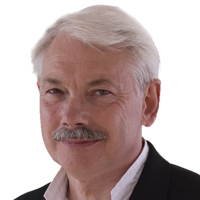Speaker Bio & Abstract

Resilience Brokers
United Kingdom
BiographyPeter established the Ecological Sequestration Trust in 2011 and Resilience Brokers, the Trust's global delivery programme, in 2017 to mobilize collaboratively through lateral partnerships the 'missing middle' of development actors and knowledge partners to provide city-regions around the world with open tools and the support they need to advance rapid systems transformations for climate resilience through integrated approaches.
Trained as a civil and structural engineer, Peter is a recognised world leader in major bridges (receiving the OBE in 1998 for successfully delivering the Second Severn Crossing as Government Agent), in advanced-composite technology, and now in sustainable development in cities and regions. From 2004-2011, Peter served as director and global head of planning and integrated urbanism at Arup, leading a multidisciplinary team that doubled to over 800 around the world and rolled out world-pioneering, sustainability-driven planning projects. He has been the recipient of many awards for his work, including the Royal Academy of Engineering’s Silver Medal, the Prince Philip Award for Polymers in the Service of Mankind and the 2008-2009 ICE Brunel International Lecture. Peter received an honorary doctorate in engineering from Bristol University, where he has been Visiting Professor in Sustainable Systems Engineering since 2009, and the CBE in the 2011 New Year Honours List for services to civil engineering and the environment. In 2018, UNISDR appointed Peter to its advisory board for the next United Nations Global Assessment Report (GAR) on Disaster Risk Reduction, to move forward the implementation of the Sendai Framework.
AbstractThe bad news is that our current global development trajectory is not inclusive and is increasing the gap between the rich and the poor. Also we continue to destroy ecological systems in the search for more and more resources to drive this growth model, and this undermines human health and well-being. Climate change seems to be accelerating and we need to change course quickly.
The good news is that we now have the computing power, data and communications bandwidth to put tools into everyone's hands so they can work collaboratively to change direction onto more resilient sustainable development paths. Every decision we all make locally today has a cumulative impact globally in years to come and we can now start to predict these feedback loop impacts with advanced global-local connected models.
In Peter's presentation he will describe how collaborative-human-ecological-economic-resource CHEER systems models can be built using GEO satellite data combined with data from ground based sensors and community census and other open data sources. He will then describe, with some examples using the evolving Resilience Brokers CHEER platform resilience.io, how such a systems model of social and ecological processes and health, at both earth and local scales, can then be used by communities to create future scenarios of holistic transformation which are more resilient, affordable and financeable.